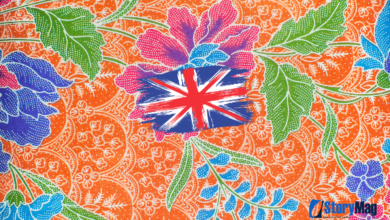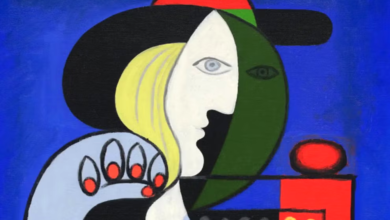Friday the 13th: Unraveling the Superstitions and Truths

Friday the 13th, a date that has sparked numerous superstitions and fears, has fascinated humanity for generations. In this comprehensive analysis, we will delve into the history, myths, and realities of this mysterious date. Is it really cursed, or are these just stories spun from the threads of human imagination? I will make sure to correct any spelling, grammar, and punctuation errors.
EXPLORE THE CONTENTS
The History of Friday the 13th
Friday the 13th, a date associated with fear and superstition, has a rich and intriguing history that spans centuries. This combination of a day and a number has sparked countless myths and legends, shaping our cultural perceptions and behaviors. Let’s delve into the historical origins of this enigmatic day and how it became an enduring symbol of bad luck.
Early Roots of the Fear of the Number 13
To understand the history of Friday the 13th, we must first explore the fear of the number 13, known as triskaidekaphobia. This fear has deep-rooted origins in various ancient cultures.
- In Norse mythology, there is a story of a banquet attended by 12 gods. Loki, the trickster god, was not invited but crashed the party, making a total of 13. This uninvited guest led to chaos and ultimately the death of the beloved god Balder, creating an association of 13 with bad luck.
- In ancient Rome, some believed that the number 12 was a symbol of completeness and perfection. However, when you added one more, making it 13, it disrupted this harmony, leading to the fear of imbalance and misfortune.
- The Bible also contributes to the fear of the number 13. At the Last Supper, there were 13 individuals present, including Jesus and his 12 disciples. Judas Iscariot, one of the disciples, betrayed Jesus, leading to the crucifixion. This association added a layer of dread to the number 13.
The Convergence of Friday and the Number 13
The convergence of Friday and the number 13 occurred in medieval times, further intensifying the fear. Several theories surround the connection between Friday and bad luck:
- In Christianity, it is believed that Friday was the day of the Crucifixion, making it a day of sorrow and misfortune. Combining this ominous day with the feared number 13 created a potent superstition.
- In the 14th century, one of the darkest periods in European history, the fear of Friday the 13th reached its peak. The Black Death was rampant, and many believed that those who fell ill did so on Fridays. The combination of fear of the day and the number intensified the superstitions.
- The works of Geoffrey Chaucer, particularly “The Canterbury Tales,” may have played a role in popularizing the fear of Friday the 13th. In these tales, Friday was considered an unlucky day for various activities, including starting a journey.
The Evolution of Superstitions
Over time, the superstitions surrounding Friday the 13th continued to evolve and grow. People began to believe that a range of unlucky events could occur on this day, from accidents to personal misfortunes. This fear influenced many aspects of daily life:
- Some buildings skip the 13th floor, jumping from 12 to 14, to avoid the superstition.
- People avoid scheduling weddings, major surgeries, or important events on Friday the 13th.
- In some cultures, black cats are considered omens of bad luck, and encountering one on this day is particularly ominous.
Read: The Evolution of Iron Man: From Comics to Movies
The Origin of Fear: Triskaidekaphobia
Our journey begins with triskaidekaphobia, the fear of the number 13, and its relationship with Friday the 13th. This deep-rooted superstition has permeated various cultures worldwide, causing people to dread this particular date. We will delve into the origins of this phobia and its historical significance.
Historical Roots of Friday the 13th Phobia
To better grasp the fear surrounding Friday the 13th, we must trace its historical roots. From the Last Supper to Norse mythology, we will explore the captivating stories and beliefs that have contributed to the significance of this day.
Common Superstitions Surrounding This Day
This section will illuminate the prevalent superstitions connected to Friday the 13th. These beliefs, such as avoiding black cats, ladders, and mirrors, have seeped into our culture, impacting daily life. We will unravel the origins of these superstitions and the reasons behind them.
The Psychological Impact of Superstitions
Moving deeper, we will examine the psychological impact of these superstitions. How do the fears associated with Friday the 13th and other superstitions affect individuals? From heightened anxiety to irrational behavior, we will uncover the profound effects these beliefs can have on the human psyche.
Real-Life Events on Friday the 13th
To provide a more comprehensive understanding, we will recount notable historical events that have taken place on this supposedly unlucky day. These anecdotes shed light on the varied experiences people have had on Friday the 13th, proving that not everything tied to this date is ill-fated.
Pop Culture and Friday the 13th
The impact of Friday the 13th on popular culture is undeniable. From movies like the “Friday the 13th” horror franchise to books, music, and other forms of media, this date has been portrayed and perpetuated in various ways. We will explore how it has left an indelible mark on our cultural landscape.
Debunking the Myths
In this section, we will embark on a journey to dispel the myths and unveil the scientific explanations behind the superstitions. Are there rational reasons for the fear associated with Friday the 13th? We will explore various theories and scientific viewpoints.
Coping with Paraskevidekatriaphobia
For those who experience paraskevidekatriaphobia, the fear of Friday the 13th, we offer practical tips to cope with this anxiety. From understanding the roots of the fear to strategies for managing it, this section provides guidance to help individuals navigate the day with confidence.
Celebrating Friday the 13th
On the flip side, some individuals embrace this day, viewing it as an opportunity for fun and unique experiences. We will explore how people celebrate Friday the 13th and turn the superstitions into something positive. From themed parties to unique traditions, there are many ways to enjoy this date.
Conclusion
In conclusion, Friday the 13th remains a day of mystery, superstition, and intrigue. While many people fear it, others have chosen to celebrate and enjoy the uniqueness it brings. The myths and facts surrounding this day continue to captivate our collective imagination, making each Friday the 13th a day filled with questions and wonder.
Frequently Asked Questions
- Is Friday the 13th genuinely an unlucky day, or is it just superstition?
- What is triskaidekaphobia, and why is it linked to this date?
- Are there any scientific explanations for the superstitions surrounding Friday the 13th?
- How can individuals overcome their fear of Friday the 13th?
- What are some unique ways that people celebrate Friday the 13th?







